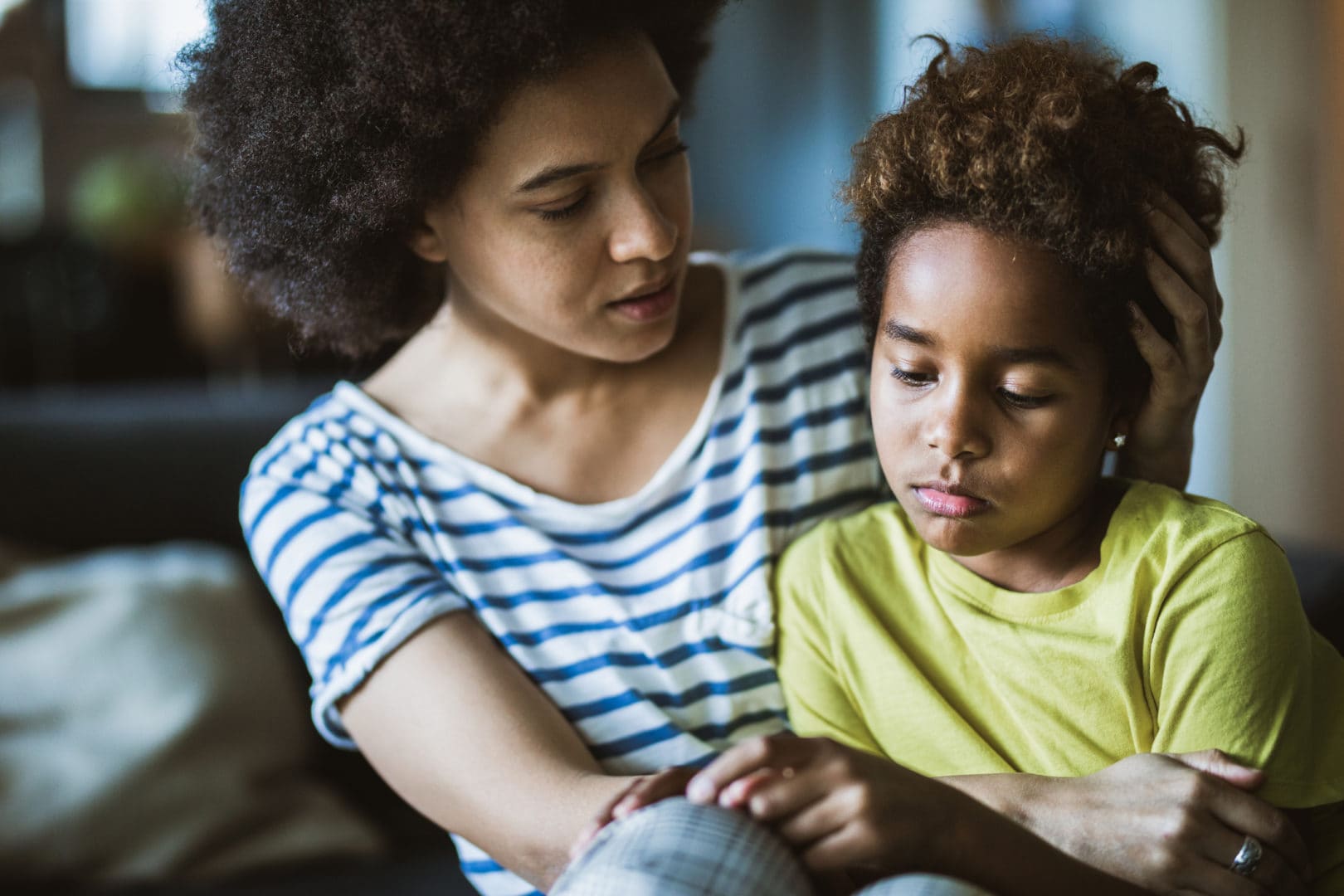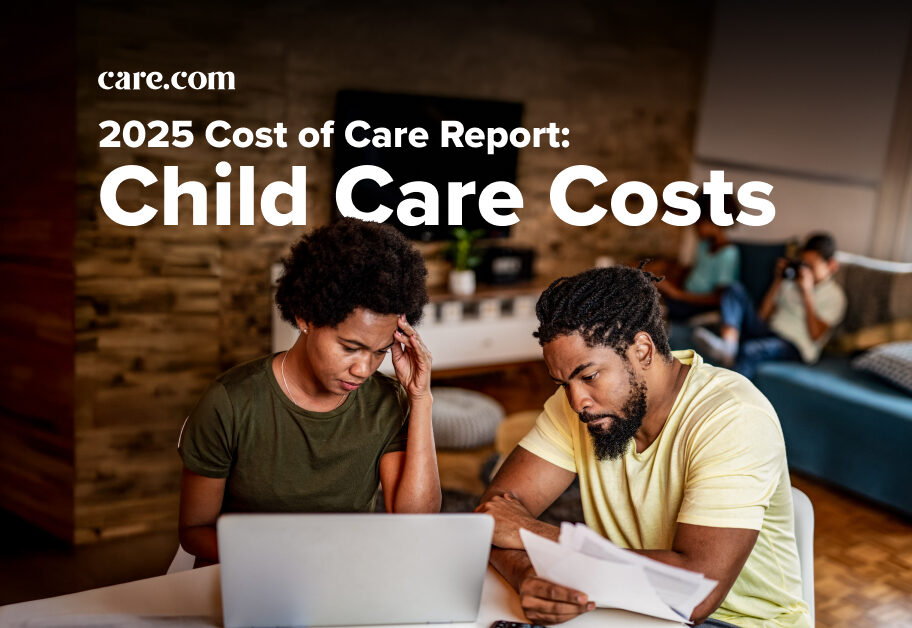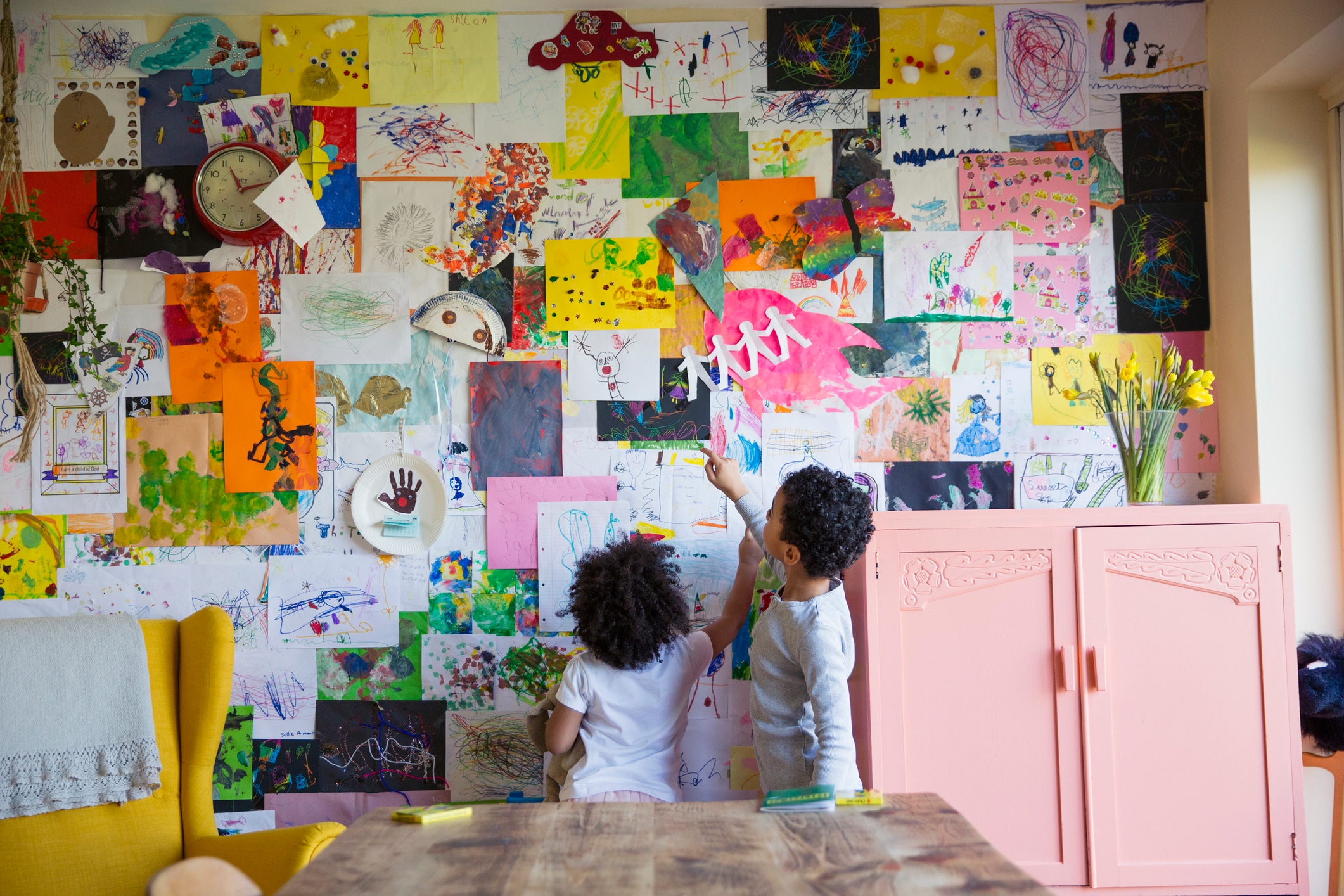If you’re the parent of a Black child, you know that sooner or later you’ll be forced to have “the talk” with your son or daughter and explain how they should interact with the police. Yet, given the events in the past few years, the time to talk to Black children — even youngsters — about the inequality they face in a predominantly white world is likely now. But just because parents know they need to talk to their children about racism doesn’t make the task any less daunting or anxiety-inducing.
Judith Uchidiuno, a mom of one from Pittsburgh, had already talked to her 7-year-old son about his race but wasn’t yet ready to dive into a conversation about its implications. “I thought I’d wait until he matures more and experiences more racism directed toward him, then I’d address [those incidents] as they happened,” she says. “I was afraid of him losing his innocence.” When her son started hearing about the protests in school, however, she changed her mind. She shared an online library of Black Lives Matter books and videos of peaceful demonstrators. “The incidents in the last few weeks finally allowed us to take off the kid gloves and tell him hard truths about race and racism in this country,” she explains.
We talked to experts and parents to get their insight and advice about how and when to have these tough talks with kids.
When and what exactly should parents reveal to a Black child about the discrimination they will face?
“By age 3, children have become aware of societal attitudes toward skin color and other racial characteristics,” says Beverly Daniel Tatum, an educator and a nationally recognized race relations expert, who holds a doctorate in clinical psychology. “Children may express negative attitudes toward dark-skinned people, for example, expressing preference for a white doll rather than a black one.”
Tatum says that Black parents should be “intentional in their efforts to affirm the child’s physical appearance” from an early age and reinforce a positive sense of self. “That is foundational to protecting children from the negative effects of racism,” she notes.
But that doesn’t mean that a young child should be asked to handle a comprehensive discussion about racism. “Some 4-year-olds are ready, and some aren’t,” says Marietta Collins, director of behavioral medicine at the Morehouse School of Medicine and co-author of “Something Happened in Our Town: A Child’s Story About Racial Injustice,” a book about a police shooting written for 4- to 8-year-olds. “It’s a child-by-child basis. Follow their lead and give them only as much information as they seem interested in and able to digest.”
How can parents prepare, not scare, Black children?
Here, experts provide more guidance on the most effective way to support your children and give yourself peace of mind.
There’s not just one way to talk to your child about racism. Parents may dread having these conversations because they fear saying the wrong thing. “As parents, we can’t be perfect,” says Dr. Kevin Simon, a child and adolescent psychiatry fellow at Boston Children’s Hospital. He subscribes to the philosophy of the ‘good enough’ parent, which means moms and dads should learn to be comfortable making mistakes. Simon explains, “We’re not going to be perfect in talking about racism or structural inequities, but we have to try.”
He also stresses the need for parents to show their vulnerability. “Parents often want to minimize a child’s feelings or suspect that because they’re only 5, they don’t sense what’s going on,” says Simon. “But if mommy or daddy is scared, little son or daughter will be, too.”
Simon notes that it’s important to talk about what you’re feeling as an adult. Are you scared? Are you angry or frustrated? “This is a great time to model the behavior you want your kids to see,” he says.
Honest, simple discussions are key. Talking about racism can be complex, especially for preschoolers. “Understanding that they could be treated differently based on the color of their skin can be hard for children to grasp,” says Kenya Hameed, a neuropsychologist at the Child Mind Institute in New York City. “You could explain it to a 4-year-old, but they could be confused because it’s so clear and obvious that it’s wrong.”
While Hameed does recommend having early conversations with young children, she advises parents to use straightforward language. “Put it very concretely that for a long time Black people have been treated differently because of what they look like — and this is wrong. You’re giving them a simple sentence to sum up what’s happening.”
Parents can take a similar approach for kids up until the age of 10 or so. Hameed invites parents to share more historical details as children get older: “You can say that for hundreds of years, people have looked at our skin color and drawn conclusions about who we are, what they think we’ve done or are going to do.”
Your child will not be emotionally scarred. “Being knowledgeable about racism and inequality is just like any other set of skills you want to teach your kid,” reminds Simon. “You’re better off equipping your child to understand why some people think and believe the way they do.”
While parents may worry these discussions may be too much for children to handle, the opposite is true. “Having these conversations won’t make your child more pessimistic or anxious,” Simon says. “The core definition of anxiety is feeling stress, tense or unable to relax in relationship to feeling overwhelmed. But by having these conversations, you’re actually giving them information so they don’t feel overwhelmed.”
Still, these conversations may be tough for parents to take. “We’ve talked about some of the most recent incidents — George Floyd, Ahmaud Arbery and Breonna Taylor — and why these events happened,” says Angela Meadows, a Brooklyn mother of an 8-year-old boy. “It’s been difficult to see him process such heavy information at a young age, but I feel it is something he needs to be aware of.”
Meadows says that because her son is tall for his age and “very spirited,” he’s no longer seen as a cute little boy. “My biggest concern right now is helping my son navigate a society that is filled with overt and covert racism and explicit and implicit bias while ensuring he maintains a strong sense of self.”
It’s OK if you’re struggling to cope
“This is one of the more challenging times in modern history to be a parent,” says Simon. He acknowledges that many are still trying to figure out how to deal with quarantines, disrupted summer vacations and the unknowns around the upcoming school year. “Communication with your son or daughter doesn’t need to be an added pressure to you,” he says. “It should be an opportunity for growth.”
But parents must take care of themselves to take care of their children, especially in the current environment. “[We] are dealing with the pandemic, plus experiencing the effects of an economic recession and all the racially charged violence,” Hameed says. “Lean on your support system — your family members, your friends. Therapy services can also help you to process this in a deeper way, so I would highly recommend that.”
Or as Tatum puts it: “Breathe deeply and work for change.”





